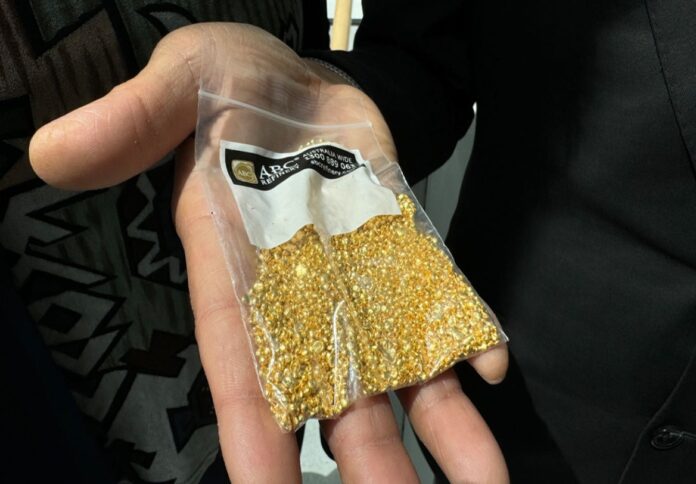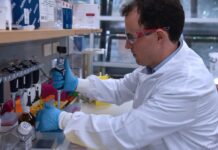
Gold-based chemotherapy drugs may soon be a stronger alternative to platinum-based treatments, according to new research from RMIT University.
Published in the European Journal of Medicinal Chemistry, the study reveals a gold-based compound that shows promising potential in treating various cancers, outperforming the widely used platinum drug cisplatin.
The compound, which was 27 times more potent against cervical cancer cells in laboratory tests than cisplatin, also showed significantly greater effectiveness against prostate cancer and fibrosarcoma cells.
In mouse studies, the gold compound reduced cervical cancer tumour growth by 82 per cent, while cisplatin only managed a 29 per cent reduction.
This new gold compound is chemically tailored to be highly reactive, designed to target an enzyme found abundantly in cancer cells known as thioredoxin reductase.
By blocking the enzyme’s activity, the gold compound can effectively prevent cancer cells from multiplying or developing resistance to treatment.
Unlike cisplatin, which indiscriminately damages both healthy and cancerous cells, the gold compound offers a more targeted approach, minimising toxic side effects and promising a future of cancer treatments that are both more effective and less harmful.
The gold-based compound also showed greater stability than previous compounds tested, maintaining its integrity while reaching tumour sites.
This stability, combined with its ability to block cancer cell growth and prevent the formation of blood vessels that tumours need to grow, makes it a dual threat in the fight against cancer.
The compound was particularly effective against ovarian cancer cells, which often develop resistance to cisplatin, offering hope for treating recurrent cancers and metastases.
RMIT’s Distinguished Professor Suresh Bhargava, who led the study, is optimistic about the compound’s future.
“While human trials are still a way off, we are really encouraged by these results,” said Bhargava. “These newly synthesized compounds demonstrate remarkable anticancer potential, outperforming current treatments in a number of significant aspects.”
The research team is collaborating with the Indian Institute of Chemical Technology (IICT) in Hyderabad under a $2 million Australia-India Strategic Research Fund grant.
The project is further supported by the involvement of scientists from both countries, including Dr Srinivasa Reddy, a key contributor to the research.
The gold compound has been granted a US patent and is now poised for further development toward potential clinical use.
Additionally, the research has garnered attention from the gold industry, with donations to support the study from Australian gold producer Pallion and interest from Agnico Eagle Mines, Canada’s third-largest gold producer.
As gold-based cancer therapies continue to gain attention globally, Bhargava sees the research as part of a broader effort to unlock the healing properties of gold in modern medicine.
“We know that gold is readily accepted by the human body, and it has been used for thousands of years in treating various conditions,” he said. “Our work is helping to provide the scientific validation needed to amplify the natural healing properties of gold.”




















